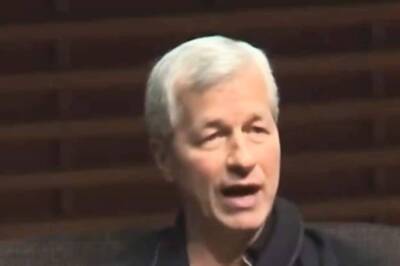
views
Pokhara: Boatman Hem Gurung waits listlessly on the deserted banks of Lake Phewa in the shadow of Nepal's spectacular Annapurna mountain range for tourists that do not come.
"Since the earthquake, Pokhara has been empty," Gurung complained in the lakeside resort, which once thronged with tourists attracted by its Himalayan vistas and outdoor adventure activities.
"Without tourists there is no work. I should be making thousands, but at the moment we are lucky to earn a hundred or two (USD 1-2) a day," said the 49-year-old, who has worked as
a boatman and tourist guide in Pokhara for 15 years.
Pokhara's cheery backpacker cafes, hotels and handicraft stores escaped the quake unscathed -- as did the popular Annapurna trekking trails that snake upwards from the resort.
Yet tourist arrivals have fallen off a cliff since the April 25 disaster, and bookings are 95 per cent down on the same period last year.
It is a pattern replicated across the desperately poor Himalayan country, which relies on tourism for around four percent of its gross domestic product and 3.5 per cent of all
employment.
"About 90 per cent of tour bookings until September have been cancelled," said Dal Bahadur Limbu, who runs Kathmandu-based travel agent Fast Travel and Tours.
"Revenue from this season is gone."Many popular tourist destinations were devastated by the
quake, which together with a strong May 12 aftershock killed nearly 8,800 people and destroyed half a million homes.
The disaster struck at the height of the spring trekking season in Nepal and killed dozens of tourists, stranding many others in remote mountain areas cut off by landslides and
accessible only by helicopter.
It triggered a massive avalanche that wiped out the village of Langtang, a stopping-off point on a popular trekking route of the same name, burying it under tonnes of ice and rock.
Another avalanche hit Everest base camp at its busiest time ahead of the spring climbing season, killing 18 people. But many tourist draws were virtually untouched including the popular Annapurna trails in the west of the country, the wildlife-rich national parks of the southern plains and Buddha's birthplace, Lumbini.



















Comments
0 comment